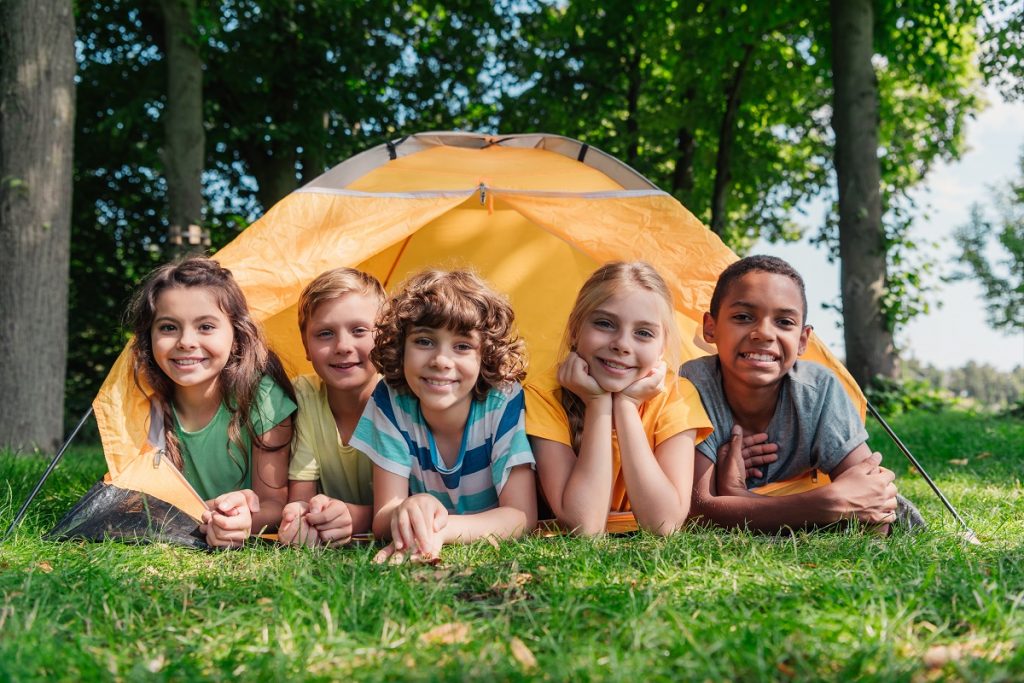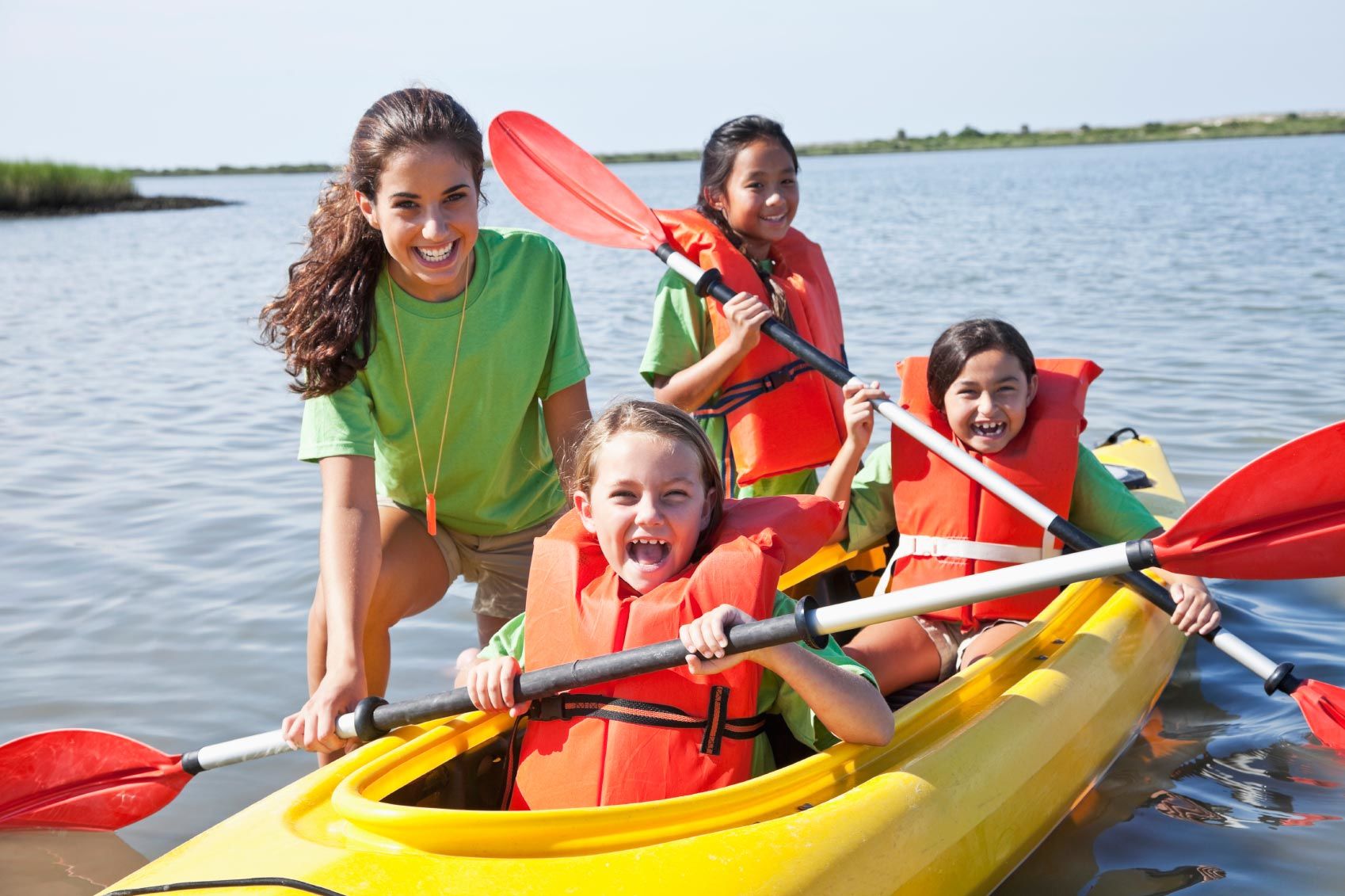Contents
hide
Summer Camp Games for Kids
A. Importance of incorporating games into the camp experience

- Encouraging active participation: Games provide an opportunity for campers to engage in active play and physical activity. Incorporating games into the camp experience promotes a healthy and active lifestyle among children.
- Creating a fun and enjoyable environment: Games add an element of excitement and fun to the camp experience. They help create a positive and motivating atmosphere, enhancing the overall enjoyment of summer camp for kids.
- Physical activity: Games encourage children to move, run, jump, and engage in various physical movements. They promote the development of gross motor skills, coordination, and overall physical fitness.
- Teamwork: Many camp games involve teamwork, cooperation, and collaboration. Children learn to work together, communicate effectively, and support each other to achieve a common goal. These activities foster a sense of teamwork and teach valuable social skills.
- Social skills: Games provide a platform for children to interact with their peers, make new friends, and develop social skills. Children learn to take turns, follow rules, and interact in a positive and inclusive manner, enhancing their social and emotional development.
Classic Outdoor Games for Summer Camp
A. Capture the Flag
- Objective, rules, and variations: Capture the Flag is a popular outdoor game where two teams compete to capture the opponent’s flag and bring it back to their own territory without getting tagged. The game can be played in various settings, and rules can be modified to suit the camp’s needs. Variations may include adding obstacles, designating “jails” for tagged players, or implementing different strategies for capturing the flag.
- Promoting strategic thinking and teamwork: Capture the Flag requires players to strategize, communicate, and work together as a team to plan attacks, defend their territory, and coordinate their movements. The game promotes strategic thinking, problem-solving, and cooperation among campers.

B. Kickball
- Game setup and rules: Kickball is a combination of soccer and baseball. It is played with a large rubber ball and bases, similar to baseball. The objective is for players to kick the ball and run the bases, scoring runs for their team. The rules are similar to baseball, with modifications to allow for kicking instead of hitting with a bat.
- Enhancing coordination and gross motor skills: Kickball requires players to coordinate their movements, including running, kicking, fielding, and throwing. The game enhances hand-eye coordination, foot-eye coordination, and gross motor skills in a fun and active way.
Water Games for Summer Camp
A. Water Balloon Toss
- Rules and variations for different age groups: In Water Balloon Toss, players stand in pairs and toss a water balloon back and forth, taking a step back after each successful catch. The game continues until the balloon breaks. Variations can include increasing the distance between players, incorporating relay races, or adding additional challenges like catching with one hand.
- Providing refreshing fun on hot summer days: Water Balloon Toss is a perfect game for cooling off and having fun on hot summer days. It provides a refreshing and interactive activity that encourages laughter, teamwork, and coordination among campers.

B. Sponge Relay Race
- Setting up the race and rules: In Sponge Relay Race, teams line up with a bucket of water at the starting line and an empty bucket at the finish line. Each player soaks a sponge in the water, carries it to the empty bucket, squeezes the water out, and races back to hand the sponge to the next player. The team that fills their bucket first wins.
- Encouraging cooperative play and quick thinking: Sponge Relay Race promotes cooperative play as teammates work together to fill their bucket. It requires quick thinking to strategize the most efficient way to carry and squeeze the sponge. The game also provides an opportunity for campers to cool down and have fun with water.
Cooperative and Team-Building Games
A. Human Knot
- Instructions for the game: In Human Knot, campers stand in a circle and reach their hands into the center, gripping the hands of two different people across from them. Without letting go, campers must untangle the knot they have created by stepping over or under each other’s arms. The objective is to untangle the knot and form a circle again without releasing hands.
- Enhancing communication and problem-solving skills: Human Knot requires campers to communicate effectively, listen to each other’s suggestions, and work collaboratively to solve the challenge. The game develops problem-solving skills, patience, and teamwork as campers strategize and maneuver their bodies to untangle the knot.
.jpg)
B. Minefield
- Objective and setup: In Minefield, campers navigate through a designated area filled with “mines” or obstacles, blindfolded. The objective is to reach the other side of the minefield without stepping on any obstacles. The team members who are not blindfolded guide their blindfolded teammates by providing verbal instructions and helping them avoid the obstacles.
- Promoting trust and teamwork among campers: Minefield promotes trust as blindfolded campers rely on their team members for guidance and support. It encourages effective communication, active listening, and teamwork as the team works together to navigate through the minefield successfully.
Creative and Mind Games for Summer Camp
A. Scavenger Hunt
- Themes and variations to suit camp settings: Scavenger Hunts can be customized based on the camp’s location and available resources. Themes can include nature, history, or team challenges. Variations can include timed hunts, clue-based hunts, or photo hunts. Campers search for specific items or complete tasks, encouraging exploration, problem-solving, and critical thinking.
- Encouraging exploration and critical thinking: Scavenger Hunts inspire campers to explore their surroundings, solve clues or puzzles, and think critically to complete the hunt successfully. It promotes teamwork as campers work together to find items or complete tasks, fostering cooperation and camaraderie.
B. Pictionary
- How to play and adapt the game for different age groups: In Pictionary, campers draw a word or phrase on a whiteboard or paper while their team members try to guess the word within a time limit. To adapt the game for different age groups, you can adjust the difficulty level of words, allow visual aids, or introduce collaborative drawing, where multiple campers contribute to one drawing.
- Stimulating creativity and communication skills: Pictionary stimulates creativity as campers use their artistic skills to convey words or phrases visually. It enhances communication skills as campers learn to effectively communicate their ideas and decipher drawings, promoting teamwork and interaction among campers.
In conclusion, incorporating games into the summer camp experience for kids is essential for various reasons. Games encourage physical activity, promoting a healthy and active lifestyle. They create a fun and enjoyable atmosphere, enhancing the overall camp experience for children. Additionally, games promote teamwork and social skills, teaching children important values such as cooperation, communication, and inclusivity. By incorporating a variety of games into the camp program, children can have a well-rounded and engaging summer camp experience.
